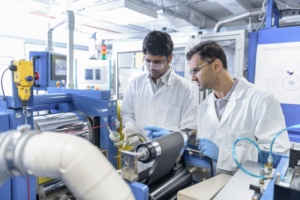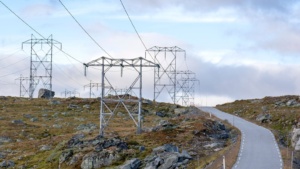Reduction of production cost
The co-processing strategy proposed in this work, shown in the figure below, represents a novelty in the literature and aims to reduce the overall production cost of liquid biofuels for the heavy-duty transport sector by reducing the cost of feedstock supply and through a better utilization of the residual heat recovered from the overall production process.

Results
The main results from this paper show that co-processing improves the overall cost of biocrude production from Fischer-Tropsch synthesis when considering gate fees for the sludge above 20 $/ton. For this gate fee, although co-processing sludge requires higher capital investment for pretreatment, the reduction of feedstock supply cost with increasing fraction of sludge becomes dominant in evaluating the overall cost of production. For gate fees of 50 $/ton, which are realistic for the current waste market, the cost of biocrude ranges between 18 and 22 $/GJ for plant scales between 150 and 600 MW based on the input feedstock energy to the entrained flow gasifier. Moreover, the overall efficiency for biocrude and LNG production, and therefore the main income to the plant, is comparable for mass fractions of the sludge in the raw feedstock ranging between 0 and 50%.
The proposed conversion route is relevant commercially since the hydrocarbon products from Fischer Tropsch synthesis, which have ultra-low concentration of sulfur, oxygen and nitrogen, can be fractionated and upgraded to market-quality liquid fuels at existing petro-chemical facilities, as co-feeds of fossil-derived crude fractions, using the final steps in the refining processes. The techno-economic analysis of upgrading Fischer-Tropsch products in existing refinery processes will be the topic of a new paper to be submitted at the end of 2017.
Also, the published paper reports a parametric model for evaluating the process and economics of the biocrude production plant. This parameterization will be integrated and used in a wider mathematical model to evaluate the economic performance of business models for liquid biofuels production in a value chain perspective. This analysis, to be finalized in 2018, will include an evaluation of how uncertainties and variabilities along the value chain affect the economic performance.











Comments
No comments yet. Be the first to comment!